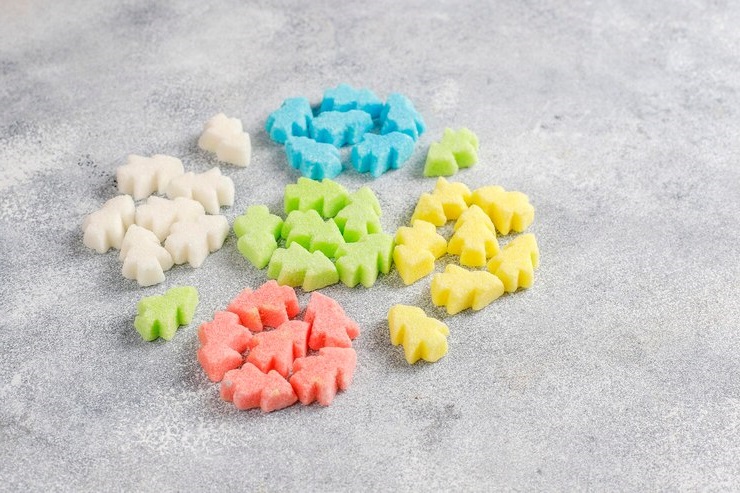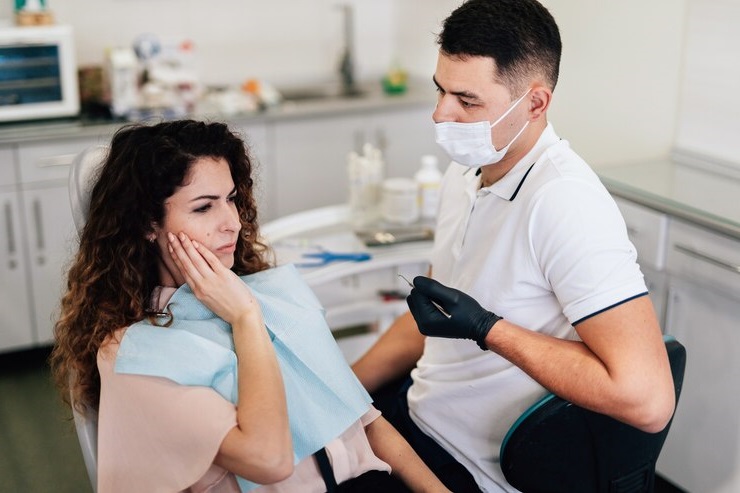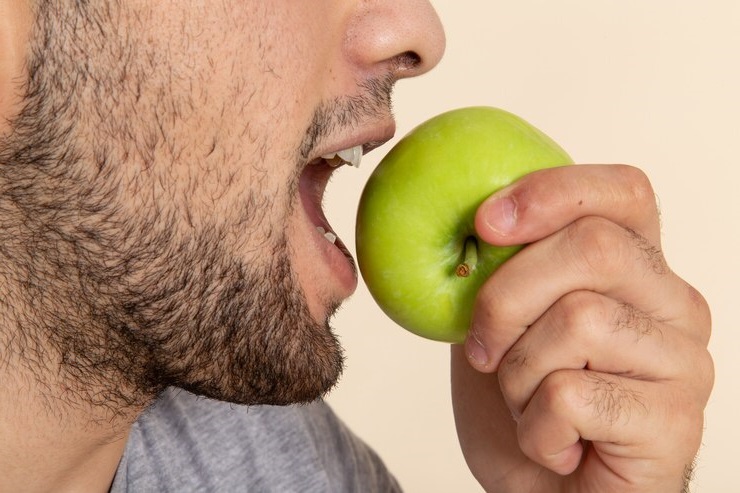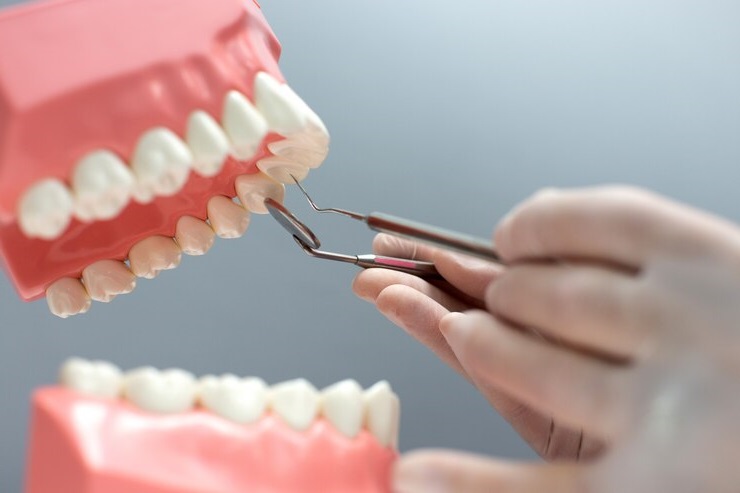
Have you ever wondered what gum kills mouth bacteria? Chewing gum is not only a popular way to freshen breath but also a method to improve oral health. Some types of gum are specifically formulated to combat harmful bacteria in the mouth. Understanding what gum kills mouth bacteria can help you choose the right product to enhance your dental hygiene routine.
The Importance of Oral Health
Maintaining good oral health is essential for overall well-being. Poor oral hygiene can lead to various dental issues such as cavities, gum disease, and bad breath. Knowing what gum kills mouth bacteria can be an effective way to prevent these problems and keep your mouth healthy.
The Role of Bacteria in Oral Health
The mouth is home to millions of bacteria, some of which are beneficial, while others can cause harm. Harmful bacteria can lead to plaque formation, cavities, and gum disease. By understanding what gum kills mouth bacteria, you can reduce the number of harmful bacteria and promote a healthier oral environment.
How Gum Can Kill Mouth Bacteria
Chewing gum stimulates saliva production, which helps wash away food particles and bacteria. However, certain types of gum are enhanced with antibacterial agents that specifically target harmful bacteria. Let’s explore what gum kills mouth bacteria and how it works.
Ingredients in Antibacterial Gum
The effectiveness of gum in killing mouth bacteria depends on its ingredients. Some common antibacterial agents found in gum include xylitol, essential oils, and other natural extracts. These ingredients can help reduce the population of harmful bacteria in your mouth.
Xylitol
Xylitol is a natural sugar alcohol found in many sugar-free gums. It has been shown to reduce the levels of Streptococcus mutans, a type of bacteria responsible for cavities. By chewing gum with xylitol, you can decrease the number of harmful bacteria in your mouth, which answers the question what gum kills mouth bacteria effectively.
Xylitol works by disrupting the energy production process of harmful bacteria, making it difficult for them to thrive. This natural sweetener not only helps reduce cavity-causing bacteria but also promotes saliva production, which further aids in washing away food particles and bacteria.
Essential Oils
Essential oils such as tea tree oil, peppermint oil, and eucalyptus oil have natural antibacterial properties. These oils can help kill harmful bacteria and freshen breath. Chewing gum that contains essential oils can be an effective way to maintain oral health and combat bacteria.
Tea tree oil is particularly known for its potent antibacterial properties. It can inhibit the growth of various bacteria and fungi, making it an excellent addition to gum for killing mouth bacteria. Peppermint oil not only freshens breath but also has antimicrobial effects that help reduce oral bacteria. Eucalyptus oil has been shown to reduce inflammation and fight against bacteria, making it beneficial for overall oral health.
Natural Extracts
Natural extracts like green tea extract and cranberry extract are also known for their antibacterial properties. These extracts can inhibit the growth of harmful bacteria and reduce plaque formation. Using gum with natural extracts can be a natural way to address the concern of what gum kills mouth bacteria.
Green tea extract contains catechins, which are powerful antioxidants with antibacterial properties. These compounds can help reduce the number of harmful bacteria in the mouth and prevent the formation of plaque. Cranberry extract works by preventing bacteria from adhering to the surfaces of the teeth and gums, thereby reducing the risk of cavities and gum disease.
Benefits of Chewing Antibacterial Gum
Incorporating antibacterial gum into your oral care routine can provide several benefits. Understanding these benefits can help you appreciate the value of knowing what gum kills mouth bacteria.
Preventing Cavities
Chewing gum with antibacterial properties can help prevent cavities by reducing the levels of harmful bacteria in the mouth. By targeting bacteria like Streptococcus mutans, antibacterial gum can decrease the risk of tooth decay and promote healthier teeth.
How Cavities Form
Cavities form when harmful bacteria in the mouth produce acids that erode tooth enamel. By reducing the number of these bacteria, you can lower the risk of cavities. Chewing antibacterial gum is a simple and effective way to combat these bacteria and protect your teeth.
Streptococcus mutans is one of the primary bacteria responsible for tooth decay. It metabolizes sugars from the food we eat, producing acids as a byproduct. These acids then demineralize and erode the enamel, leading to the formation of cavities. By incorporating antibacterial gum that targets Streptococcus mutans, you can significantly reduce the risk of developing cavities.
Improving Gum Health
Gum disease, also known as periodontal disease, can lead to serious dental issues if left untreated. Chewing antibacterial gum can help improve gum health by reducing inflammation and the number of harmful bacteria in the mouth.
Signs of Gum Disease
- Red, swollen gums: Early sign of gingivitis.
- Bleeding gums: Often noticed during brushing or flossing.
- Bad breath: Persistent halitosis can indicate gum disease.
- Loose teeth: Advanced gum disease can lead to tooth loss.
Gingivitis is the earliest stage of gum disease, characterized by redness, swelling, and bleeding of the gums. If left untreated, it can progress to periodontitis, a more severe form of gum disease that can result in the destruction of the supporting structures of the teeth, leading to tooth loss. Chewing antibacterial gum can help reduce the inflammation and bacterial load in the mouth, thereby improving gum health and preventing the progression of gum disease.
Freshening Breath
Bad breath, or halitosis, is often caused by an overgrowth of harmful bacteria in the mouth. Chewing antibacterial gum can help freshen breath by reducing these bacteria and promoting a healthier oral microbiome.
Causes of Bad Breath
Bad breath can be caused by various factors, including poor oral hygiene, dry mouth, and certain foods. By incorporating antibacterial gum into your routine, you can help address some of the underlying causes of bad breath and enjoy a fresher mouth.
Poor oral hygiene can lead to the accumulation of food particles and bacteria in the mouth, resulting in bad breath. Dry mouth reduces saliva production, which normally helps cleanse the mouth and neutralize acids produced by bacteria. Certain foods, such as onions and garlic, can also contribute to bad breath. Chewing antibacterial gum can help stimulate saliva production, reduce bacterial load, and neutralize odors, providing a comprehensive solution to bad breath.
Scientific Evidence on Antibacterial Gum
While the concept of antibacterial gum is relatively new, there is growing scientific evidence supporting its benefits for oral health. Let’s explore some of the key studies and findings on what gum kills mouth bacteria.
Research on Xylitol
Several studies have shown that xylitol can effectively reduce levels of harmful bacteria in the mouth. One study found that chewing gum with xylitol significantly decreased the number of Streptococcus mutans, a type of bacteria that causes cavities.
Study Findings
- Reduction in Bacteria: Xylitol was found to reduce the levels of harmful bacteria by disrupting their energy production process.
- Decrease in Cavities: Regular use of xylitol gum was associated with a decrease in the incidence of cavities.
Xylitol interferes with the ability of Streptococcus mutans to produce acids, thereby reducing their capacity to cause tooth decay. It also promotes the remineralization of tooth enamel, further protecting against cavities. This dual action makes xylitol a highly effective ingredient in antibacterial gum.
Research on Essential Oils
Essential oils like tea tree oil and peppermint oil have been studied for their antibacterial properties. Research has shown that these oils can effectively reduce the levels of harmful bacteria in the mouth, freshen breath, and improve overall oral health.
Study Findings
- Antibacterial Effect: Essential oils were found to inhibit the growth of harmful bacteria and reduce plaque formation.
- Improved Oral Health: Regular use of products containing essential oils was associated with better oral hygiene and fresher breath.
Tea tree oil has been shown to possess strong antimicrobial properties against a wide range of bacteria, including those responsible for oral infections. Peppermint oil not only freshens breath but also has been demonstrated to reduce bacterial counts in the mouth. These essential oils can be effectively delivered through chewing gum, providing a convenient method to enhance oral hygiene.
Research on Natural Extracts
Natural extracts like green tea and cranberry have also been studied for their antibacterial properties. These extracts can help reduce the levels of harmful bacteria in the mouth and promote a healthier oral environment.
Study Findings
- Reduction in Plaque: Green tea extract was found to reduce plaque formation and improve gum health.
- Antibacterial Properties: Cranberry extract was shown to inhibit the growth of harmful bacteria and reduce the risk of cavities.
Green tea extract contains catechins, which have been shown to inhibit the growth of oral bacteria and reduce the adherence of bacteria to tooth surfaces. Cranberry extract works by preventing bacteria from forming biofilms, which are protective layers that bacteria create to shield themselves from the immune system and antibacterial agents. These properties make natural extracts valuable components in antibacterial gum.
Choosing the Right Antibacterial Gum
With so many options available, choosing the right antibacterial gum can be overwhelming. Here are some factors to consider when selecting gum to kill mouth bacteria.
Ingredients
Look for gum that contains proven antibacterial ingredients like xylitol, essential oils, and natural extracts. These ingredients can help reduce the levels of harmful bacteria in your mouth and improve oral health.
Recommended Ingredients
- Xylitol: Effective in reducing harmful bacteria and preventing cavities.
- Tea Tree Oil: Known for its antibacterial properties and ability to freshen breath.
- Green Tea Extract: Helps reduce plaque and improve gum health.
Product Quality
Choose gum from reputable brands that prioritize quality and effectiveness. Reading reviews and seeking recommendations can help you find high-quality antibacterial gum.
What to Look For
- Brand Reputation: Choose products from well-known brands with positive reviews.
- Certifications: Look for products that have been tested and certified for their antibacterial properties.
- Customer Reviews: Reading reviews can provide insights into the effectiveness of the gum.
Flavor and Texture
Select a gum with a flavor and texture you enjoy. This will make it easier to incorporate the gum into your daily routine and ensure you use it consistently.
Popular Flavors
- Mint: Freshens breath and has a pleasant taste.
- Cinnamon: Offers a unique flavor and has antibacterial properties.
- Fruit: Provides a sweet taste without added sugars.
How to Incorporate Antibacterial Gum into Your Oral Care Routine
To maximize the benefits of antibacterial gum, it’s important to use it correctly and incorporate it into your daily oral care routine. Here are some tips on how to do this effectively.
Chewing Gum After Meals
Chewing antibacterial gum after meals can help reduce the levels of harmful bacteria in your mouth and freshen your breath. This practice can be especially beneficial if you are unable to brush your teeth immediately after eating.
Steps for Effective Use
- Choose the Right Gum: Select a gum with proven antibacterial ingredients.
- Chew for at Least 20 Minutes: This helps maximize the gum’s effectiveness in reducing bacteria.
- Use After Every Meal: Make it a habit to chew antibacterial gum after meals to maintain oral hygiene.
Chewing gum after meals stimulates saliva production, which helps wash away food particles and neutralize acids produced by bacteria. The antibacterial ingredients in the gum further enhance this effect by targeting harmful bacteria, providing a comprehensive approach to maintaining oral hygiene.
Combining with Regular Oral Care
Antibacterial gum should complement, not replace, your regular oral care routine. Brush your teeth at least twice a day, floss daily, and use mouthwash if recommended. Adding antibacterial gum can enhance your oral hygiene.
Effective Brushing Techniques
- Use a Soft-Bristled Toothbrush: Prevents enamel and gum damage.
- Brush for Two Minutes: Ensure thorough cleaning of all surfaces.
- Use Fluoride Toothpaste: Strengthens enamel and prevents cavities.
Brushing and flossing remove plaque and food particles that can contribute to tooth decay and gum disease. By combining these practices with the use of antibacterial gum, you can achieve a more thorough cleaning and better overall oral health.
Real-Life Experiences with Antibacterial Gum
Hearing about real-life experiences can provide valuable insights into the benefits of antibacterial gum and how to use it. Here are some stories from people who have incorporated antibacterial gum into their oral care routines.
John’s Success Story
John struggled with frequent cavities and bad breath. After starting to use antibacterial gum with xylitol, he noticed significant improvements. “I wasn’t sure what gum kills mouth bacteria, but once I started using xylitol gum, my breath got fresher and I had fewer cavities,” he says.
Sarah’s Gum Health Journey
Sarah had issues with gum inflammation and bleeding. Her dentist recommended antibacterial gum with tea tree oil to help manage her symptoms. “I wasn’t sure what gum kills mouth bacteria, but my dentist explained that tea tree oil gum works best for me. I’ve seen a big improvement in my gum health,” she shares.
Emma’s Fresh Breath Solution
Emma dealt with chronic bad breath, which affected her confidence. She started using an antibacterial gum with peppermint oil and noticed a remarkable difference. “My breath is much fresher, and I feel more confident. Understanding what gum kills mouth bacteria made all the difference,” she explains.
Frequently Asked Questions About Antibacterial Gum
When it comes to using antibacterial gum, people often have many questions. Here are some frequently asked questions and their answers to help you understand how to use antibacterial gum effectively.
Is Antibacterial Gum Safe for Everyone?
In general, antibacterial gum is safe for most people. However, individuals with certain health conditions or allergies should consult a healthcare professional before using antibacterial gum. The best gum for you will depend on your specific health needs and any underlying conditions.
How Long Does It Take to See Results?
The time it takes to see results from antibacterial gum can vary depending on the individual and the specific health concern. Some people may notice improvements within a few days, while others may take several weeks to experience the full benefits. Consistency is key when using antibacterial gum.
Can Antibacterial Gum Replace Regular Oral Care?
While antibacterial gum can provide significant benefits for oral health, it should not replace regular oral care practices like brushing and flossing. Instead, antibacterial gum should be used as a complementary measure to enhance your overall oral hygiene routine.
Can Antibacterial Gum Help with Other Oral Health Issues?
Yes, antibacterial gum can help with various oral health issues, including gum disease, bad breath, and oral infections. By promoting a healthy balance of bacteria in your mouth, antibacterial gum can support overall oral health and prevent a range of dental problems.
Should I Use Antibacterial Gum with Other Oral Care Products?
Using antibacterial gum alongside other oral care products like toothpaste and mouthwash can enhance its effectiveness. Look for products that contain complementary antibacterial ingredients to maximize the benefits.
Conclusion
In conclusion, understanding what gum kills mouth bacteria can help you make informed decisions about your oral health. By incorporating antibacterial gum into your daily routine, you can support a healthy balance of bacteria in your mouth, reduce harmful bacteria, and enhance your overall oral hygiene.
While more research is needed to fully understand the mechanisms by which antibacterial gum works, the existing evidence suggests that it can play a beneficial role in maintaining oral health. Remember, the best approach to using antibacterial gum includes choosing the right product, maintaining good oral hygiene practices, and consulting with a healthcare professional if you have any questions or concerns.





